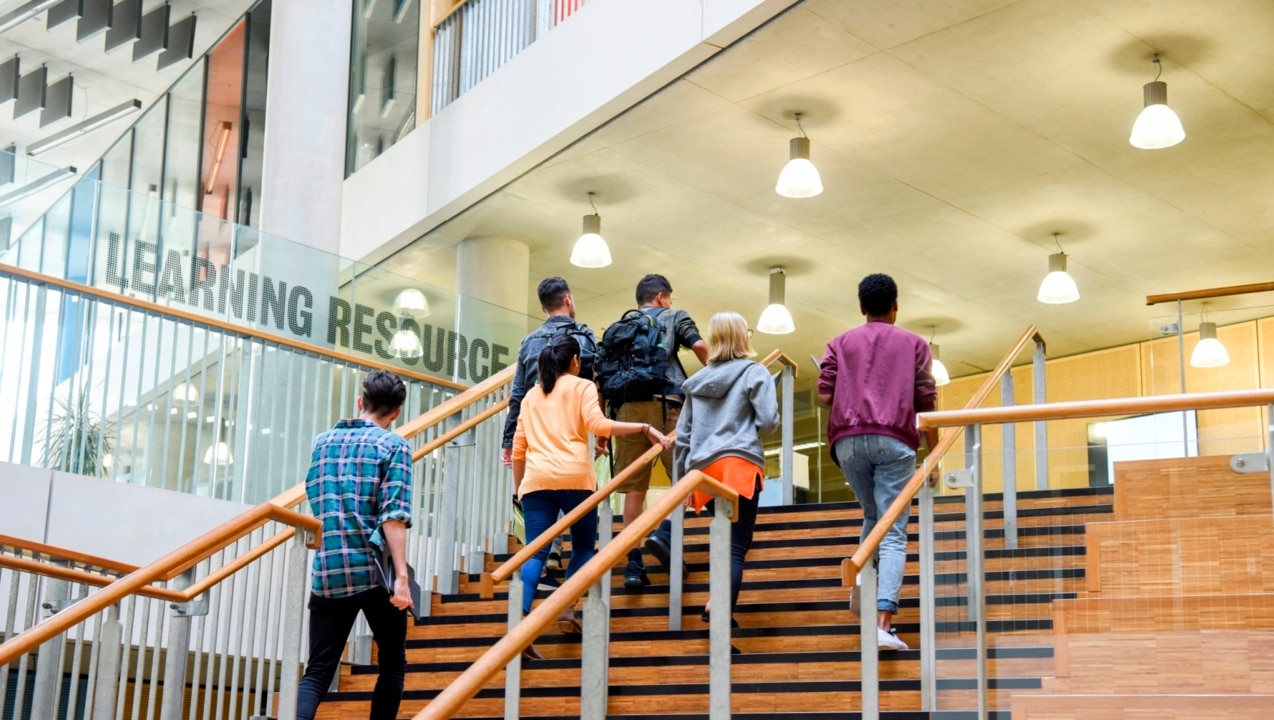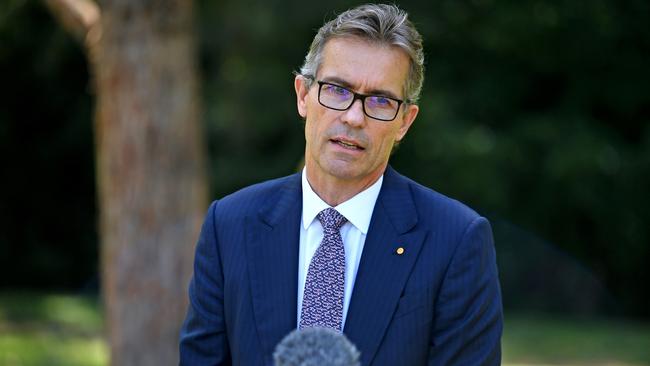University of Queensland labels fee hikes “very disappointing”
Queensland’s top university has labelled fee hikes for some students as “very disappointing”, while another has warned the tertiary fee overhaul could cause a $5 million loss.

Education
Don't miss out on the headlines from Education. Followed categories will be added to My News.
QUEENSLAND’s top university has labelled the federal government tertiary fee hikes for some students “very disappointing”, while another institution has warned the policy could cause a $5 million loss.
Opinion: Unis cry poor but splurge on flash new facilities
Maths drop-out rate that could kill cheap university dream
The University of Queensland‘s Vice-Chancellor Professor Peter Høj yesterday wrote to students saying despite the good news for some students’ fee reductions, it was very disappointing reforms meant other students would be paying significantly more.
“Overall, Australian students will now contribute 48 per cent of the revenue received by universities for Commonwealth supported places instead of 42 per cent,” he wrote.
A University of Sunshine Coast spokesman yesterday told The Courier-Mail that based on current modelling the policy would mean a $5 million loss.
The spokesman said it appeared that while more income would be received for Humanities degrees, overall income from student and government contributions to deliver most STEM courses would decrease.
“Our largest student cohorts are in nursing science and education, so an increased government focus on those areas is positive,” he said.
How much every university degree will cost in 2021
It follows Education Minister Dan Tehan‘s university funding reforms announced on Friday that student contributions for law and commerce would hike by 28 per cent and fees for humanities would increase by 113 percent.
However, teaching, nursing, psychology, English and languages students would pay 46 per cent less.
And Agriculture and maths students would pay 62 per cent less while science, health, architecture, IT and engineering pupils would pay 20 per cent less.
UQ’s Vice-Chancellor also wrote an email to staff this week which said it was concerning that the university‘s funding from the government could be on average 15 per cent less per student but yesterday a spokesperson told The Courier-Mail that new information suggested that figure could improve but the university was still waiting for further information to calculate the full impact.

Mr Høj said the university absolutely supported the government‘s intent to boost domestic enrolments and participation of Indigenous, rural and remote students, and its commitment to supporting research.
QUT’s vice-chancellor and president Professor Margaret Sheil said they supported the move to increase student numbers, but said the student loan repayment threshold should be lifted if students are to shoulder more of the financial burden.
She said the potential for the reduction in government contributions to science and engineering to dissuade universities from offering these courses in the numbers required, was a major concern.
Grattan Institute’s higher education program director Andrew Norton said while the full economic impact to the sector was still unclear, he was not confident the fee overhaul would have a substantial impact on its desired effect.
He said students were more likely to choose university courses based on their interests rather than fees.
Southern Cross University and Griffith University both told The Courier-Mail they were still waiting on further technical details before the full impact of the policy was clear.
While James Cook University welcomed the resumption of funding increases along with CPI and increased student numbers, it was concerned about any increase to fees for humanities and social sciences.
“Such courses are an essential element in a university education where students are taught critical thinking and have access to a range of disciplines and areas of study,” a spokesman said.
CQU backed the changes that meant regional communities would benefit from reduced costs to remove barriers to study and extra student enrolments.
The University of Southern Queensland did not respond before deadline.
